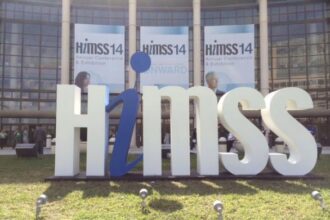As of this writing, 5 air traffic controllers have been found asleep at the switch. By the time this piece is posted, several others may have joined the slumber party. Keep in mind, there’s a lot more snoozing in the towers than we’re aware of. We don’t know the denominator here. Our wise reactive government has recently issued orders that airport control towers must not be manned by only one individual. Somehow, prior to NappingGate, our bloated and inefficient government that is riddled with redundancy thought that one sole guy watching the radar at night was sufficient.
As of this writing, 5 air traffic controllers have been found asleep at the switch. By the time this piece is posted, several others may have joined the slumber party. Keep in mind, there’s a lot more snoozing in the towers than we’re aware of. We don’t know the denominator here. Our wise reactive government has recently issued orders that airport control towers must not be manned by only one individual. Somehow, prior to NappingGate, our bloated and inefficient government that is riddled with redundancy thought that one sole guy watching the radar at night was sufficient.
There are some jobs where nodding off poses no risk. Let me test my readers’ acumen on this issue. Which of the following professions would not be at risk if an unscheduled siesta occurred?
- A race car driver
- A congressman
- A circus clown (not to be confused with above listing)
- A lawyer (not to be confused with the above listing)
- A school bus driver
Let’s face it. Some folks on the job simply can’t safely snore their way through it. We don’t want New York City taxi drivers to fall asleep while they are swerving through midtown. We don’t want a navy pilot who is racing through the sky to catch some ZZZs. And, we don’t want a surgeon to have to be nudged into consciousness while he is performing some task within an abdomen.
We don’t know yet the reasons why folks are sleeping in the air traffic control towers. Maybe it’s the soft music they play. Perhaps, the sounds of incoming aircraft have a hypnotic effect. Or, maybe they’re just tired.
Indeed, the issue of control tower fatigue has been raised, among other potential explanations. It may be that their assigned work schedules are too demanding, and there are not sufficient work breaks. We’ll find out. Most of us who enjoying the luxury and comfort of air travel (turn on guffaw track now) are hoping that the air traffic controller who is guiding our plane to the runway is reasonably alert. However, I shouldn’t assume this. Choose from the following 2 statements.
I prefer that my air traffic controller be alert and well rested.
I prefer that my air traffic controller be in the 36th hour of his shift, with only a few pockets of interrupted sleep. I feel safe knowing that this battle hardened professional is prepared for any adversity. I don’t want some softie managing the radar. I want a tough guy who will do his job regardless of how fatigued and stuporous he is.
I’m afraid that many readers are now stuck, as they are agonizing over the above choice. If after 15 minutes, you still cannot choose an answer, then move on. You will have time later to return to this question.
The issue of fatigue is now recognized to be an important issue in the training of medical interns and residents. I remember when the tragic Libby Zion case in New York City occurred in 1984, which we all hoped would lead to reform in medical education. It is amazing how entrenched the medical education system is, and how difficult it is to modify it. New rules were issued to allow interns and residents more sleep and some mandatory time off, but there were exceptions and loopholes that are still used today. This was not simply an effort to introduce humanity into medical training. Relieving overworked medical interns and residents was designed to reduce medical errors and reduce medical malpractice. Even if I can’t prove it, I maintain that a rested medical intern is more likely to avoid medical errors.
Why do so many still want medical interns and residents to work when they are exhausted? Is it for cheap labor for hospitals? Is it to test their mettle for when they become real doctors? Is it really so interns don’t ‘sign off’ at 5 pm and miss the natural history of their patients’ diseases? Are program directors trying to minimize patient ‘hand offs’ by having medical housestaff work extended hours? Or, do some senior physician educators advocate arduous work schedules because they endured it in their time?
All of the above reasons, and others I may have overlooked, can be refuted with sensible reforms, and everybody knows it. Sure, practicing doctors have to be sharp in the middle of the night, and we are. But, most nights we sleep comfortably at home. I don’t think the fatigue and ongoing sleep deprivation I suffered as a medical resident was necessary preparation for the nocturnal care that I am called to render now, from time to time.
I know that many physicians have strong opinions that oppose mine. I hope that they and others will express themselves here. I would like to close this post with the irrefutable evidence that supports my argument, but I feel myself starting to nod off. No worries. When a blogger bugs out for a few minutes, no one gets hurt.






